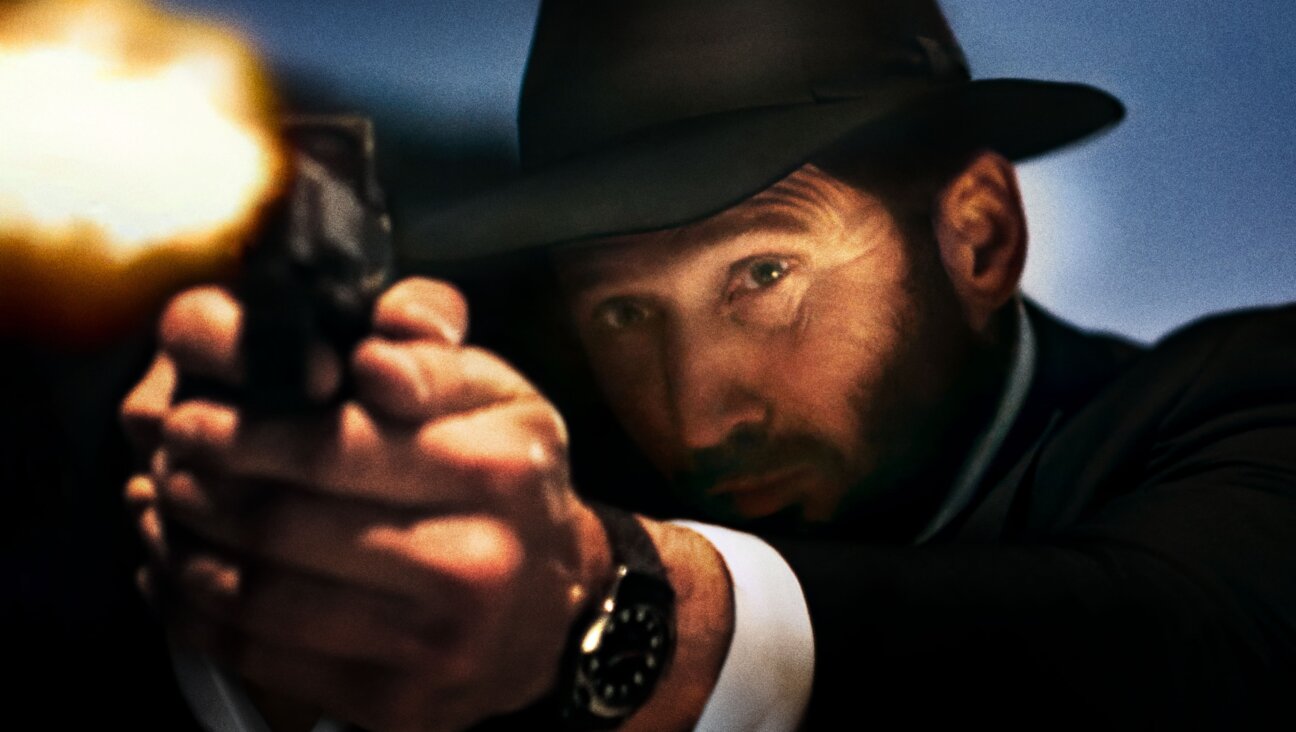Is ‘Rifkin’s Festival’ Woody Allen’s love letter to cinema — or something more cynical?

Graphic by Angelie Zaslavsky
“Rifkin’s Festival,” Woody Allen’s 49th feature, has a marketing problem.
I’m not really alluding to the obvious issues. Not the HBO series about the alleged – and denied by Allen – sexual abuse of his daughter Dylan Farrow (full disclosure, I was a talking head in said series). Or even something like the #MeToo press tour dustup that led to Amazon shelving his last feature, “A Rainy Day in New York,” along with his contract with the studio (Allen sued; Amazon countersued; the parties eventually settled).
No, I really just mean the terrible trailer, which makes the comedy, filmed on location in scenic San Sebastian during its annual film festival, where it debuted in 2020, seem derivative of every other creaky Woody Allen mid-to-late life crisis affair flick. Don’t get me wrong, the movie – now coming to streaming services and select U.S. theaters, Jan. 28 – is derivative of a lot of Allen’s other work. But where there is triteness by design – in entertaining pastiches of Fellini, Bergman and Truffaut – the film transcends the usual formula. These featured sequences are nowhere indicated in the trailer. Heck, they’re not even in the press stills they gave me.
In a way “Rifkin’s Festival” is all about marketing.
We open on Mort Rifkin, a typical Allen luftmensch played by Wallace Shawn, who appears to have also raided Allen’s wardrobe for blue Oxford button-downs. Mort is a former film professor and aspiring novelist who loves the European directors and disdains the output of Hollywood. (He hates “Some Like it Hot,” like Allen. His affinities, which are also Allen’s, will soon be revealed.)
Mort goes to San Sebastian, Spain with his wife, Sue (Gina Gershon), a publicist. He comes along reluctantly (imagine?), he tells a therapist in a framing device, because he suspects that Sue is attracted to a director she does PR for. That would be the hotshot young Frenchman Philippe (Louis Garrel), a devotee of Frank Capra and John Ford who is debuting a ghastly-sounding, and much-lauded, antiwar film called “Apocalypse Dreams.”
Immediately there’s trouble for Sue and Mort in paradise. Sue needs to spend a lot of time with Philippe at press conferences – where he says his next film will, hopefully “offer some solution for reconciliation for the Arabs and Israel.” This leaves Mort plenty of time to wander the city, concerned for his marriage and daydreaming himself into the films he loves.
We get a Gregg Toland-style vision of a Jewish “Citizen Kane,” where Rosebud is a deceased Holocaust survivor named Rose Budnick, who on her death rattle, drops a snow globe containing a tenement building with ground-floor meat and dairy stores. As Mort strolls through a park, he sees a vision of his disapproving father (Richard Kind), and we get a Hebraic “8 ½” – obviously without the Wagner.
Allen has given us Fellini before in “Stardust Memories” and, when we get to the “Wild Strawberries” and “Persona” portion of Mort’s woolgathering, we’re reminded Allen loves nothing so much as the black-and-white stylings of Ingmar Bergman. But Allen’s never quite so direct in his cinematic quotation as he is here, recreating familiar sequences at length and with precision and casting Mort’s family and friends in the usual roles, mocking his lofty taste and his aim to be the next James Joyce.
This walking tour of the Criterion Collection is quite fun, even as Mort collides – of course – with a younger, married Spanish physician, Jo (Elena Anaya), who he sees for heart trouble. He becomes enchanted with her as it dawns on him that Philippe and Sue’s mutual attraction isn’t just in his head. Soon he’s playing out “Jules et Jim” in the cinema of his mind and Sue is venting to him in a scene pulled from “Breathless.”
Mort’s concerns are most vivid in the language he knows best: the vernacular of film, where Allen’s stilted dialogue makes sense and some sight gags are a welcome reprieve from a by-the-numbers jaunt through a gorgeous resort town.
That said, Allen does try to mix in some good jokes about the grimy, transactional nature of film festivals. In an early scene, a reporter is heard to ask an actress “were all your orgasms special effects?” Another attendee is excited about a restoration of a Three Stooges movie. Yet another tells a statuesque blonde she’d be perfect for Hannah Arendt in his Eichmann biopic. (This last joke is not great, given the wide-spread predation at European film festivals, often hinged on the promise of roles that may never materialize.)
Mort has some rather dull bon mots – of Philippe’s film that will bring peace to the Middle East, he says “I’m glad he’s turning to science fiction” – and Allen even tries his hand at a joke that worked great the first time. When Mort complains of a bump on his hand to Sue, in a ploy to see Jo, a self-identified “qualified physician” (“the best in Europe”) appears a la Marshall McLuhan in “Annie Hall.”
Allen is playing the hits, but the film is at its best when they aren’t his own. It seems like he’s having fun experimenting with form and, occasionally, when his sensibility melds with one of his idols, it’s quite satisfying. Toward the end, a familiar figure to cinephiles appears to Mort before literally “fading out” of the scene. It’s equal parts Bergman and the “out of focus” bit from “Deconstructing Harry.” The latter example is much better, but it’s nice to be reminded of it.
If you haven’t yet joined a boycott, are fond of Woody Allen’s lighter fare and want to see his take on “The Exterminating Angel,” you will find something to enjoy in this film.
But even if you’ve been disappointed with his recent output, there’s something gentle about the way this one comes down to earth that surprised me. Even as it mocks the way middlebrow work is marketed as prestige and preens with its references to continental auteurs, it has its humbled moments along with Mort, who comes to learn that his dismissal of any film without subtitles is an insufferable quality. With regard to his younger love interest, the film does not go where you dread it might and instead allows room for something simpler for our Allen surrogate: a life made better by art. The enjoyment of it, if not the production.
Here as in so many of his films, Allen finds possibility in the past as a way to move forward. Old masterpieces endure, Mort argues at one moment, because they grapple with concerns larger than the politics of the moment. But, the past, artful or no, can also be dangerous when offering cover for the reality of the present. Even in this relatively uncynical turn, a love letter to film, some may see a smoke screen for – to put it crassly – Allen’s own bad publicity.




















